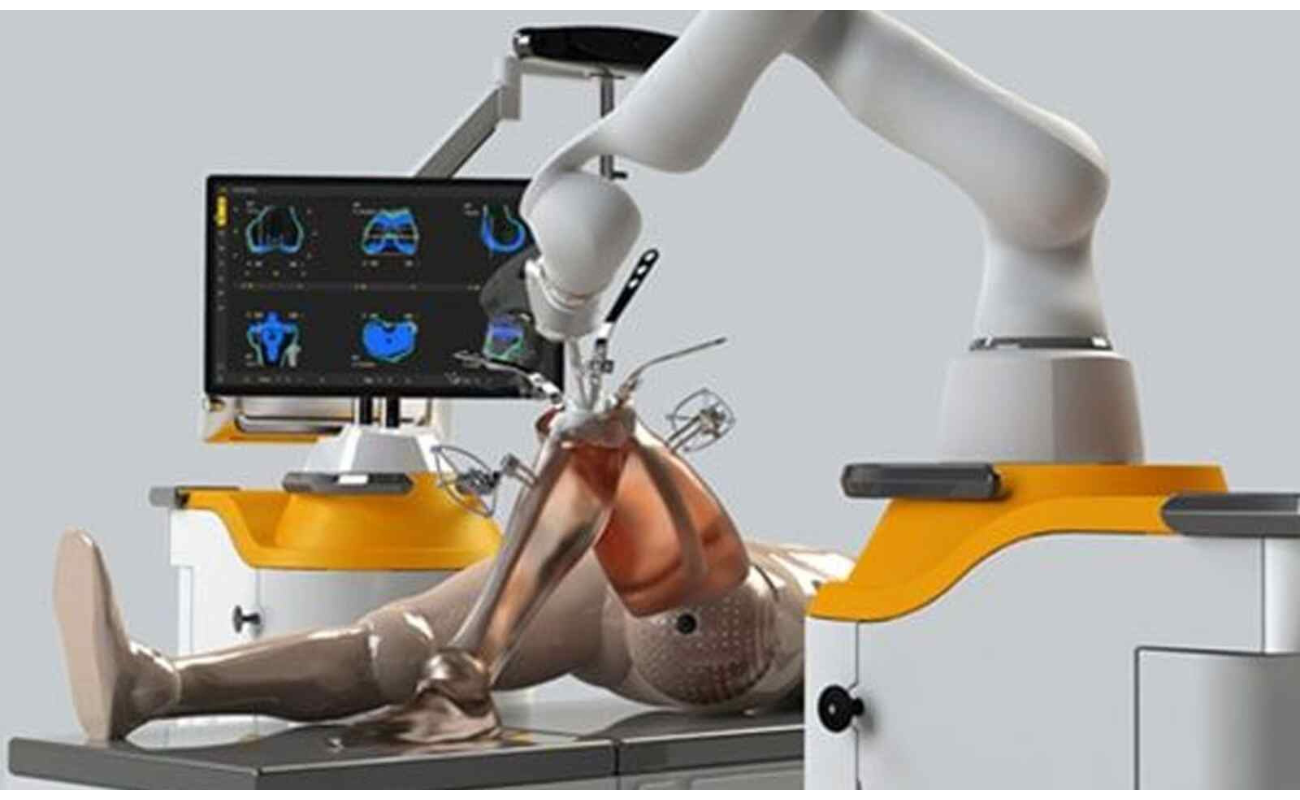The Benefits of Robotic Knee Replacement Surgery

December 25, 2023
In recent years, medical technology advancements have brought about a revolution in the field of orthopedic surgery, particularly in the realm of knee replacements. Traditional knee replacement surgery has long been the primary solution for individuals experiencing severe knee pain caused by arthritis or injury. However, the emergence of robotic knee replacement surgery has elevated this procedure to new heights, offering a multitude of benefits that significantly improve patient outcomes and overall satisfaction.
I. Understanding Robotic Knee Replacement Surgery
What is Robotic Knee Replacement Surgery?
Robotic knee replacement surgery represents a groundbreaking approach that seamlessly merges state-of-the-art robotic technology with established orthopedic procedures. This advanced system leverages computer-assisted technology and skillfully controlled robotic arms, guided by proficient surgeons, to execute meticulous and tailored knee replacements.
How Does Robotic Surgery Work?
The process commences by utilizing advanced imaging techniques, including CT scans, to generate a comprehensive 3D representation of the patient's knee. This intricate model serves as a guiding compass for the surgeon, ensuring meticulous surgical planning with unparalleled precision. Throughout the procedure, the robotic system collaborates with the surgeon, facilitating the execution of the pre-defined plan and guaranteeing accurate bone cuts and optimal positioning of the implant.
Benefit from Robotic Knee Replacement Surgery
I. Precision and Accuracy
Robotic knee replacement surgery offers a multitude of advantages, with one of the standout benefits being its unmatched precision and accuracy. By harnessing advanced imaging techniques, robotic systems can generate a meticulous 3D model of the patient's knee. This invaluable tool empowers surgeons to meticulously plan and flawlessly execute the procedure with exceptional precision. The result? Impeccable alignment of the implant, leading to enhanced functionality and durability.
II. Personalized Treatment Plans
Robotic knee replacement surgery offers a highly personalized approach to treatment. During the preoperative planning phase, the procedure is tailored to each patient's unique anatomy. By customizing the surgery based on individual characteristics like bone structure and joint alignment, robotic systems ensure a precise fit of the implant, leading to improved success rates and patient satisfaction. This advanced technology enhances the overall quality of care and empowers patients to achieve optimal outcomes.
III. Minimally Invasive Techniques
Compared to traditional knee replacement surgeries, robotic procedures frequently employ minimally invasive techniques. This translates to smaller incisions, less harm to surrounding tissues, and a speedier recovery for patients. The precision of robotic systems enables surgeons to achieve the same objectives with smaller incisions, reducing bodily trauma and facilitating a quicker return to normal activities.
The 3D imaging also allows surgeons to navigate around delicate structures, resulting in a minimally invasive approach that prioritizes patient comfort and well-being. The harder to access areas of the knee can be reached with greater ease and accuracy, leading to improved outcomes and patient satisfaction.
IV. Reduced Blood Loss and Infection Rates
Robotic technology has revolutionized knee replacement surgery, offering benefits such as reduced blood loss and lower risk of postoperative infections. By employing precise procedures, robotic systems minimize tissue disruption, creating a cleaner surgical environment and diminishing the likelihood of complications.
Conventional methods often come with post complications like infections which extend the recovery process. With robotic systems, patients can expect a safer and more efficient surgery with lower chances of complications. This advancement not only enhances patient outcomes but also underscores the remarkable potential of robotics in the field of healthcare.
V. Faster Recovery and Shorter Hospital Stays
Robotic knee replacement surgery provides patients with a wide range of advantages, such as faster recovery and shorter hospital stays compared to conventional procedures. By utilizing minimally invasive techniques and precise implant positioning, individuals can quickly resume their daily activities, ultimately enhancing their overall quality of life.
VI. Improved Implant Longevity
The precision achieved with robotic assistance in knee replacement surgery directly affects the longevity of the implants. By ensuring proper alignment and placement, wear and tear on the artificial joint is minimized, potentially extending the lifespan of the implant. This is particularly advantageous for younger patients, providing them with a more durable solution and potentially delaying the need for revision surgery.
VII. Enhanced Range of Motion and Functionality
Robotic knee replacement surgery aims to not only restore the structural integrity of the joint but also enhance its functionality. The procedure's precision in alignment and customization contributes to a broader range of motion, enabling patients to regain a more natural movement in their knee. This improvement in functionality can have a significant impact on a patient's ability to actively engage in daily activities and lead a more active lifestyle.
VIII. Real-time Feedback for Surgeons
Robotic knee replacement surgery provides a remarkable benefit: surgeons receive real-time feedback. Throughout the procedure, the robotic system continuously provides data and visualizations, enabling surgeons to make informed decisions. This invaluable feedback enhances the surgeon's ability to navigate unforeseen obstacles, resulting in a smoother and more successful surgery.
Factors to Consider Before Opting for Robotic Knee Replacement Surgery
Robotic knee replacement surgery brings numerous benefits, yet it may not be suitable for everyone. Before deciding on this procedure, several factors need careful consideration. These include the severity of your knee condition, overall health and medical history, as well as lifestyle choices. To determine the best course of action, it is crucial to consult with a qualified orthopedic surgeon who can assess if robotic knee replacement surgery is the optimal choice for you.
Conclusion
In summary, robotic knee replacement surgery offers extensive and life-changing advantages. With its precision, accuracy, and customized treatment plans, this groundbreaking approach represents a remarkable advancement in orthopedic medicine. Additionally, it facilitates faster recovery times, further enhancing its value in the field.
With the continuous advancement of technology, it is highly probable that robotic-assisted procedures will become increasingly prevalent. These procedures have the potential to provide patients with enhanced outcomes and an elevated quality of life. A prime illustration of this transformative synergy between technology and medicine is robotic knee replacement surgery, which is poised to shape the future of healthcare.
